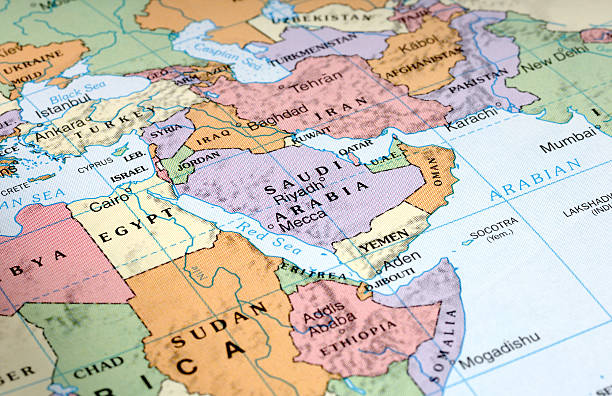On January 18, Prime Minister Netanyahu claimed that Israel under his leadership will not compromise on less than total victory over Hamas, and they will win. “In any arrangement in the foreseeable future — with an arrangement or without one — Israel must have security control over all the territory west of the Jordan,” Mr. Netanyahu also said at a news conference, referring to the area that would supposedly belong to an independent Palestinian state. “This clashes with the idea of sovereignty. What can you do? The prime minister needs to be capable of saying no to our friends,” he declared.
The next day, President Biden and Mr. Netanyahu spoke for the first time in nearly a month. After their call, Mr. Biden said, “There are a number of types of two-state solutions. There’s a number of countries that are members of the UN that… don’t have their own militaries. And so, I think there’s ways in which this could work.” Indeed, there are a number of small countries with no army, navy, or air force but none without a police force.
And “Every week the Netanyahu coalition promises the Biden administration that we will see meaningful changes, and every week it never materializes,” commented US Senator Chris Van Hollen (D-Md.), who is engaged in an effort to impose conditions in exchange for aid.
“Promised meaningful changes”?
The foregoing only reflects a state of discord and confusion.
Apart from a hundred unanswerable questions at present, the problem starts with a look at the map. In theory, a future independent and sovereign Palestinian state would consist of two separate pieces of territory, the West Bank and Gaza. There are examples of countries with separate territories like the US, where Alaska is separated from the rest of the country by Canada, a friend and ally. But there are also examples of separate territories such as Russia’s Kaliningrad exclave bordered by Lithuania, Belarus and Poland, and Azerbaijan’s landlocked Nakhchivan exclave bordered by Armenia, Iran, and Türkiye. In these two latter cases, access to and from the exclaves experience problems arising from regional conflicts.
Supposing a Palestinian state is established. How would the West Bank and the Gazza Strip would be linked as the former is a landlocked territory? Would Palestinian citizens travel by land back and forth for roughly 90 kilometers, going through Israeli customs and security checks every single time? Or would a tunnel or bridge of peace be built for easier access? What about the possibilities for moving from one place to the other? Would Gazans be allowed to move and own a house in the West Bank if that were their choice? Or would West Bank Palestinians would be encouraged to settle in mass in a rebuilt Gaza? These remain tough questions because Israelis and Palestinians would need decades to start enjoying a good-neighborly relationship which, despite the current picture, I believe is possible. Higher standards of living and increased opportunities for education for Palestinians would make the task easier.
Thus, despite the recent fine talk in the West about the “two-state solution”, even the launching of a diplomatic process to that end will take time. This is not going to happen during President Biden’s tenure. Nobody knows what would follow if he were to be succeeded by Mr. Trump who withdrew the US from the JCPOA, the West’s first significant engagement with Iran. If the authoritarian Islamic regime of Tehran is more of a regional power today than before, this is largely due to the interventions in Iraq and Syria. In other words, there is little in the present Middle East picture that was entirely unexpected.
The war in Gaza has come at a cost not only for Israel but also for the West and mostly for Washington. As the Financial Times reported on October 18, 2023, “We have definitely lost the battle in the Global South,” said one senior G7 diplomat. “All the work we have done with the Global South [over Ukraine] has been lost . . . Forget about rules, forget about world order. They won’t ever listen to us again.”[i]
In a remarkable article titled, “The World Won’t Be the Same After the Israel-Hamas War”, published in Foreign Policy Winter 2024, Professor Stephen M. Walt draws attention to the same problem.
[i] https://www.ft.com/content/e0b43918-7eaf-4a11-baaf-d6d7fb61a8a5










